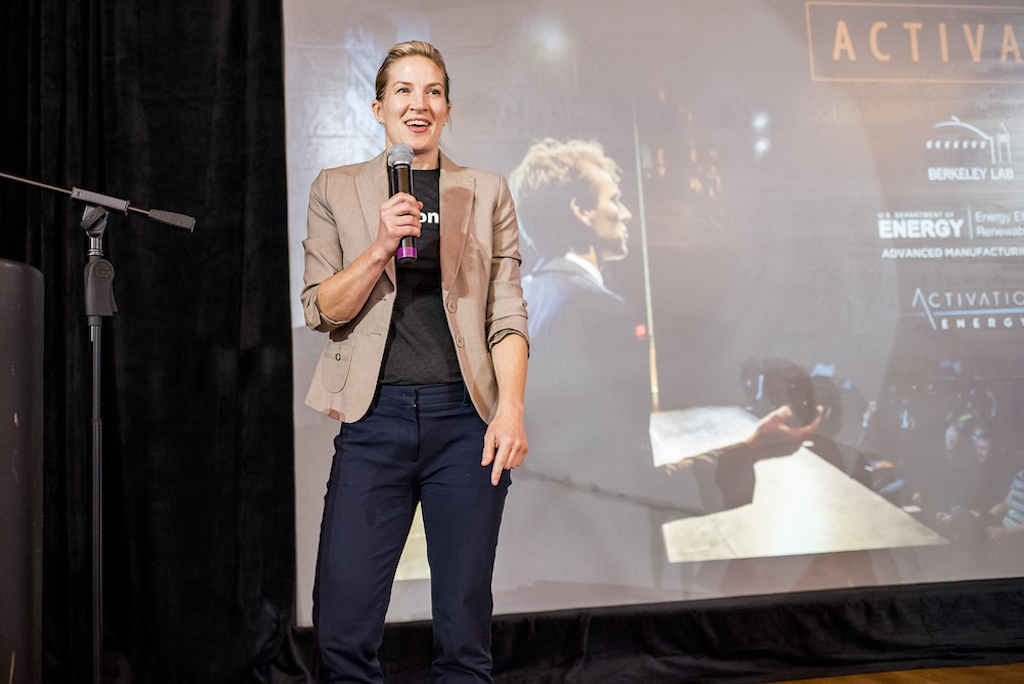4 Mins Read
Right now, soy dominates the planet as the most widely available and productive source of protein. Trophic is now on a mission to change that. The Berkeley, California-based startup believes that seaweed holds the key – not just because they think it will help products taste great, but also because it could be the world’s most sustainable and scalable protein.
Tech entrepreneur Beth Zotter and Amanda Stiles, a plant biochemist and former research lead at pea-based dairy brand Ripple Foods, wanted to build a better food system that is good for the planet, animals and people – and they believe that seaweed is the answer. Together, they founded Trophic, a startup based in the San Francisco Bay Area that has since won the support of the Good Food Institute (GFI), Activate and even the ARPA-E, the U.S. government agency focused on funding advanced energy tech projects.
Why seaweed? Trophic says its benefits are three-fold. Firstly, it’s sustainable, with millions of tonnes of the stuff produced in the ocean using no resources other than existing nutrients in the sea and sunlight. Seaweed is also a powerhouse in terms of nutrition, containing all the essential amino acids, vitamin B12, and an impressive amount of protein and fibre.
To put the cherry on top, seaweed can make plant-based meat alternatives taste great, thanks to its umami savoury flavour that people crave about real animal meat – and we know that when it comes to convincing mass consumers to adopt alternative proteins, taste always comes first. One type of red algae called dulse, for instance, has even been described as tasting like bacon when cooked.

Read: 8 startups leveraging super seaweed, from biodegradable t-shirts to vegan shrimp
Our ingredient has good water-holding capacity, so we think it will do a really good job of maintaining moisture and fat.
Beth Zotter, Co-Founder & CEO, Trophic
Out of the many species of seaweed out there, Trophic is currently focused on a red algae called Rhodophyta, because of its high protein content and vibrancy, making it a suitable ingredient to make plant-based protein alternatives that taste, cook and look like the real thing.
Speaking to Grist in a recent interview, Zotter says more specifically that they’re interested in creating “whole muscle meat analogues”, which she describes as the “brass ring” in the plant-based meat industry. They’re able to do this because of the unique gel-like properties and textures in seaweed, which helps bind three-dimensional structures to replicate a cut of real animal meat.
“Imitating a juicy steak or burger is tough because plant-based food products lose a lot of oil and moisture when cooked. Our ingredient has good water-holding capacity, so we think it will do a really good job of maintaining moisture and fat,” she says, adding that it “browns nicely” too.
“Our goal is to make a product that has all the essential amino acids and natural B12, has good colour, texture, and a nice umami flavour, too,” added Stiles in the same interview.
But where it gets really exciting is the potential for seaweed to become the world’s most sustainable, available and scalable protein source that could even surpass the current frontrunner: soy.

“Our goal is to develop the most sustainable supply chain for protein on Earth,” Zotter told Grist. According to Trophic, seaweed can easily grow in harsh conditions without any fertiliser, freshwater and while it does, it absorbs carbon dioxide too, actively helping remove the greenhouse gases that are contributing to climate change.
Our goal is to make a product that has all the essential amino acids and natural B12, has good colour, texture, and a nice umami flavour.
Amanda Stiles, Co-Founder & CTO, Trophic
On their website, the startup says that while right now, they are a protein company, they’re also “quietly building the foundational technology that will allow seaweed farming to reach massive scale”. To that end, Trophic is working with research innovation lab Otherlab and the University of New Hampshire to develop the first offshore seaweed farm tech in the Gulf of Maine.
“We’re working on offshore farming technology and we’re developing robots to do this work,” she explains. “The Department of Energy is funding us because it is interested in seaweed as a renewable fuel. But the same technology could allow seaweed to become the most sustainable, scalable source of protein on Earth.”
Lead image courtesy of Brian Azzopardi / Atlantis Gozo.



